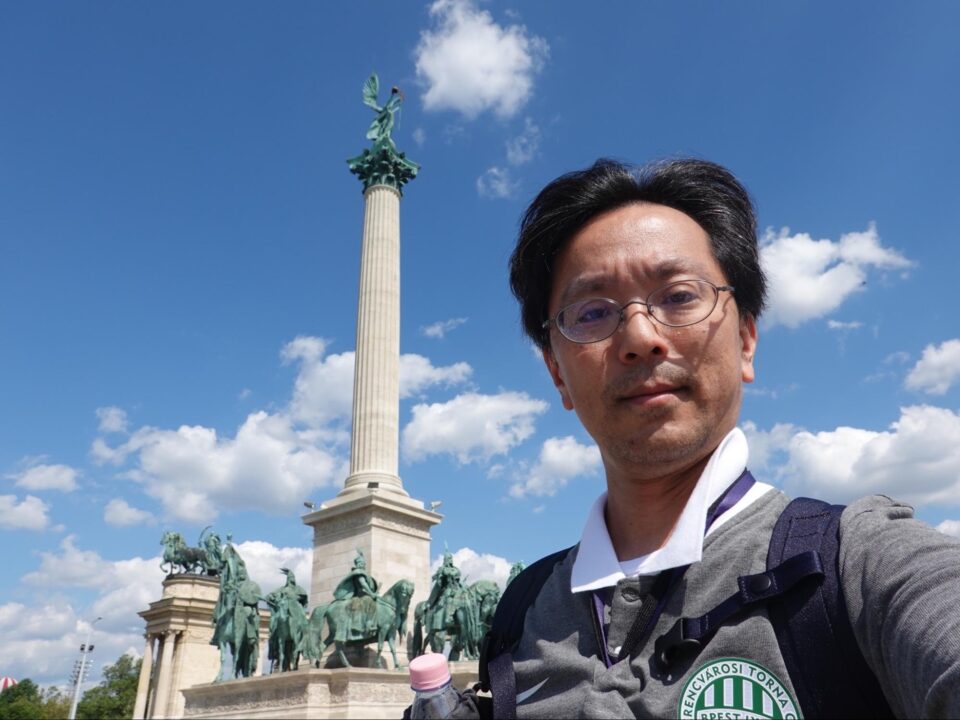Associate Professor Eiji Konaka teaches Applied Analysis, System Control I, and Robot Systems at the undergraduate level, as well as Advanced Topics in Intelligent Control Systems and Scientific and Technical English at the graduate level. We spoke with him about his research and his impressions of the students.
In December 2022, I took my first overseas business trip in a while, accompanying graduate students as they presented their research at an international conference in Singapore.
Could you please introduce yourself?
I’ve spent my entire life in Nagoya—for school, university, work, and everything in between. After studying electrical engineering at the undergraduate and graduate school, I had the good fortune to join Meijo University as a faculty member. I’m sure there were opportunities to venture out along the way, but I feel a strong pull from Nagoya. I feel a deep connection to this place.
As a researcher, I have many opportunities to travel abroad. During breaks at international conferences, I often visit the stadiums—even when there’s no game going on. Additionally, I participated in quiz competitions during my student days, and I’m amazed by the recent quiz boom.

Panathinaiko Stadium, which hosted the first modern Olympic Games, is located in the city center.
Please tell us about your field of expertise and what makes it interesting.
My current specialties can be broadly divided into two areas. The first is systems and control engineering, which I’ve been involved with since my student days. It’s a field that uses mathematics to understand the rules governing phenomena and to design mechanisms that achieve specific objectives. The second is sports data analytics, which grew out of my hobby of watching sports.
In sports data analytics, I utilize measurement data from sporting events to evaluate team and athlete performance, create rankings, and more. In both fields, the appeal lies in using mathematics and computers to gain a clearer understanding of reality.

What are your recent research themes?
I’ve been creating various sports rankings using publicly available data. By generating performance rankings based on results such as wins, losses, and goal differences, these rankings can also be used to predict match outcomes. In recent years, I have been continuously publishing predictions for the Olympics and multiple other sports.
I am also working on quantifying individual contributions in team sports—expressing each player’s impact as numerical values—based on detailed in-game records.

How do the things learned and skills acquired at university prove useful after graduation?
By learning mathematical laws and principles, you gain a deeper understanding of how to interpret reality. Once you develop the ability to look past surface differences and focus on the underlying similarities in the governing rules, your “resolution” for viewing the world becomes much sharper.
You also learn to distinguish between phenomena that follow clear, elegant laws (such as in physics) and those that do not (such as social systems), and to understand the different approaches needed for each. That skill should serve as a useful guide for the rest of your life.
What is your impression of the students in the Faculty of Information Engineering at Meijo University?
Admission to this faculty requires considerable preparation in physics and mathematics.
While many students were able to handle the volume of the work, I got the impression that converting that into good quality required some ingenuity.
At university, the knowledge learned up to high school is something to be used, but I’ve noticed a wide range of differences in how well students make that mental shift. I hope they will use their university life as an opportunity to change themselves for the better.

Budapest, which I visited in early summer 2023, was a wonderful city!

